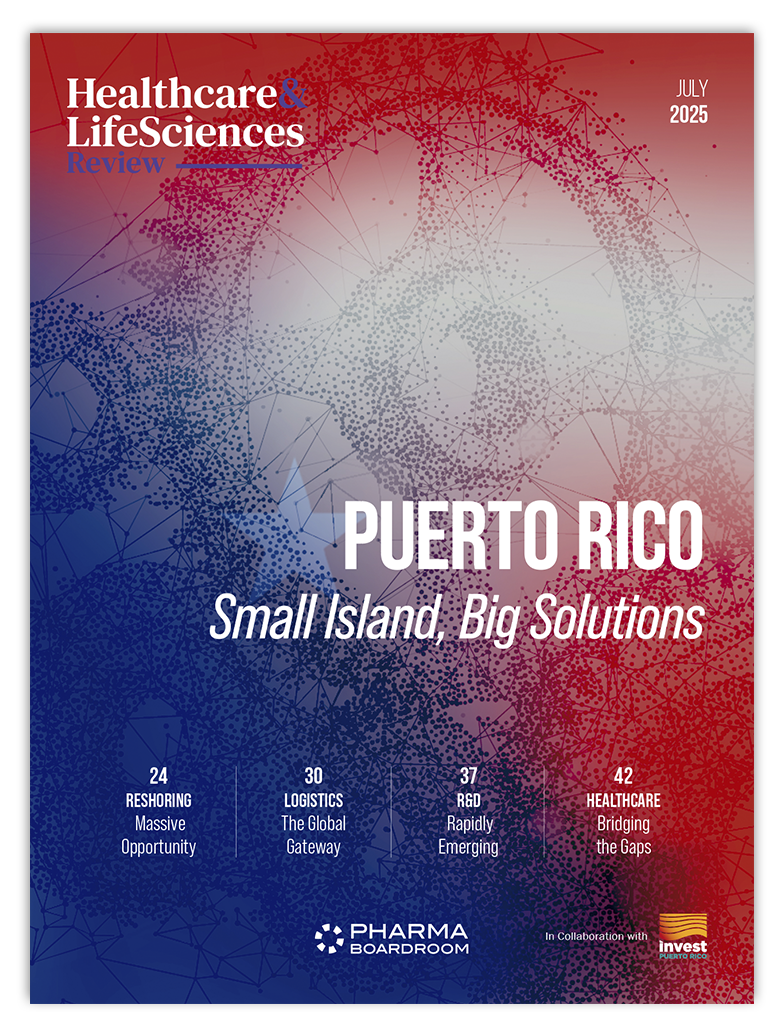As Denmark launches its ambitious Life Science Strategy 2030, the Danish Medicines Agency (DKMA), long held as the embodiment of European regulatory excellence, is fine-tuning its priorities. New director Nils Falk Bjerregaard sees the DKMA’s role as a “facilitator of innovation,” supporting early-stage development and leveraging real-world data at home, while enabling clinical trials in Denmark and across Europe.
Denmark’s Life Science Strategy 2030, a Sharpened Focus
The Danish Medicines Agency (DKMA) plays a central role in shaping Denmark’s national health policy, acting as Denmark’s national authority for pharmaceuticals, medical devices, and clinical research. As Nils Falk Bjerregaard, who took the helm of the DKMA six months ago, points out, the agency also figures prominently in developing European regulatory alignment. “In addition to our national remit, we play a central role within the European Medicines Agency (EMA) framework, contributing directly to EU-wide regulatory procedures.”
Through these responsibilities, the agency has long represented regulatory rigour both domestically and in Europe, yet Denmark’s new Life Science Strategy 2030 may also be helping the DKMA to hone in on its prime concerns. The strategy, which aims to build on Denmark’s life sciences strengths and increase the sector’s growth, has in fact provided the regulator with what Bjerregaard calls “a timely and structured mandate that has shaped many of our priorities.”
While the DKMA remains centred on safeguarding public health through the regulation of safe and effective medicines and medical devices, under the new national plan it has also, Bjerregaard asserts, fine-tuned its focus. “[The Strategy] has encouraged us to view our work not only through the lens of regulatory excellence but also as a facilitator of innovation, a partner to healthcare systems and patients, and a contributor to national competitiveness,” he says. “In this way, the strategy has sharpened our direction while reaffirming the foundational responsibilities that define the agency.”
An Accelerator for Early-Stage Development
The national strategy has created a framework from which the DKMA can promote innovation, but the Danish agency has also taken several steps of its own to reinforce Denmark’s innovative ecosystem. Specifically, it has been supporting early-stage development through directed guidance, offering smaller life sciences players the regulatory support they need to advance their therapies.
“While large pharmaceutical companies often possess the in-house capabilities to navigate regulatory pathways independently, many other developers of advanced therapies such as academic institutions, start-ups, and small to mid-sized enterprises require more tailored support,” Bjerregaard maintains. “To address this, we have prioritised the provision of early scientific advice, helping these organisations establish robust regulatory strategies from the beginning.”
By offering early support, the agency helps to ensure the development efforts of smaller life sciences innovators are aligned with quality and safety standards from the start of their journey, an outcome that has garnered widespread approval. “The initiative has been well-received, with growing engagement from emerging developers and academia, and we view it as a successful step toward enabling innovative treatments to reach patients more efficiently,” the director general asserts.
Real-World Data in a Highly Digitalised Nation
Another important focus area for the agency is leveraging Denmark’s high level of digitalisation in order to benefit from real-world data (RWD). As previous director general Lars Bo Nielsen confirmed in a PharmaBoardroom interview last year, “Denmark was one of the countries at the early forefront of digitalisation.” This advantage, together with the nation’s national health data infrastructure, have made the DKMA “uniquely positioned to incorporate real-world data into both regulatory decision-making and scientific advancement,” says Bjerregaard.
The DKMA’s work with real-world evidence has gained significant momentum and last year it saw more than a dozen RWD projects completed under the existing EU regulatory framework. This year, the agency is targeting the completion of 50 more projects. Bjerregaard maintains that this progress is supported by the internal hub for data expertise and innovation created in 2020, the Data Analytics Centre (DAC). Additionally, these efforts are aligned with the broader implementation of the European Health Data Space (EHDS), launched earlier this year to accelerate the use of real-world evidence across Europe.
RWD is a critical tool in areas such as rare diseases and personalised medicine where small patient populations limit the scalability of standard randomised studies, according to the director, and the Danish regulatory agency along and the EMA are actively promoting its use. “While we are not yet at a stage where real-world data can fully substitute clinical trials, both Denmark and the EMA are advancing pilot projects and exploring regulatory sandboxes to build evidence, test methodologies, and refine governance models.”
Breaking Down Europe’s Clinical Research Barriers
The DKMA has also been active in promoting clinical research in its home country and throughout Europe. The agency has been participating in the EU-wide COMBINE initiative aimed at addressing the regulatory challenges of Europe’s fragmented landscape. “COMBINE brings together national regulators across the EU to harmonise their approaches and ensure that applicants receive coherent, non-conflicting advice when planning cross-cutting studies,” affirms Bjerregaard. “Instead of leaving sponsors to resolve inconsistencies on their own, authorities collaborate to integrate regulatory perspectives, providing a unified, reliable pathway to conduct complex trials across Europe.”
At home, the agency is working on improving Denmark’s clinical research ecosystem. “DKMA has made the enhancement of Denmark’s clinical research environment a strategic priority,” Bjerregaard avows. A big piece of this, for the agency, has been to rethink the country’s regulatory culture and move towards openness, dialogue and responsiveness. “Rather than working behind closed doors, we engage stakeholders from across the ecosystem including industry, academia, healthcare professionals, and patient organisations to co-develop frameworks that are both scientifically robust and operationally sound,” he claims. “This engagement is carried out through both structured platforms, such as stakeholder councils, and more informal, day-to-day exchanges that allow for real-time feedback.”
This move towards transparency has as its main objective the breaking down of obstacles that stand to block the advancement of innovation. “While we remain uncompromising in our commitment to safety, efficacy, and quality, we also recognise the importance of ensuring that regulation does not become an unintended barrier to innovation or patient access,” Bjerregaard contends. “By maintaining a continuous, structured dialogue with our stakeholders, we aim to strike that delicate balance. This allows the DKMA to foster a regulatory environment that is not only rigorous, but also adaptive, transparent, and enabling.”
In a further move to enable research efforts in Denmark, the DKMA has worked on facilitating decentralised clinical trials. “National guidelines have been developed to support this shift, and the response from clinical researchers has been overwhelmingly positive. Moreover, Denmark was one of the first EU countries to fully operationalise the Clinical Trials Information System (CTIS), the new European platform for managing trial applications, helping to ensure transparency, harmonisation, and accessibility across member states.”



